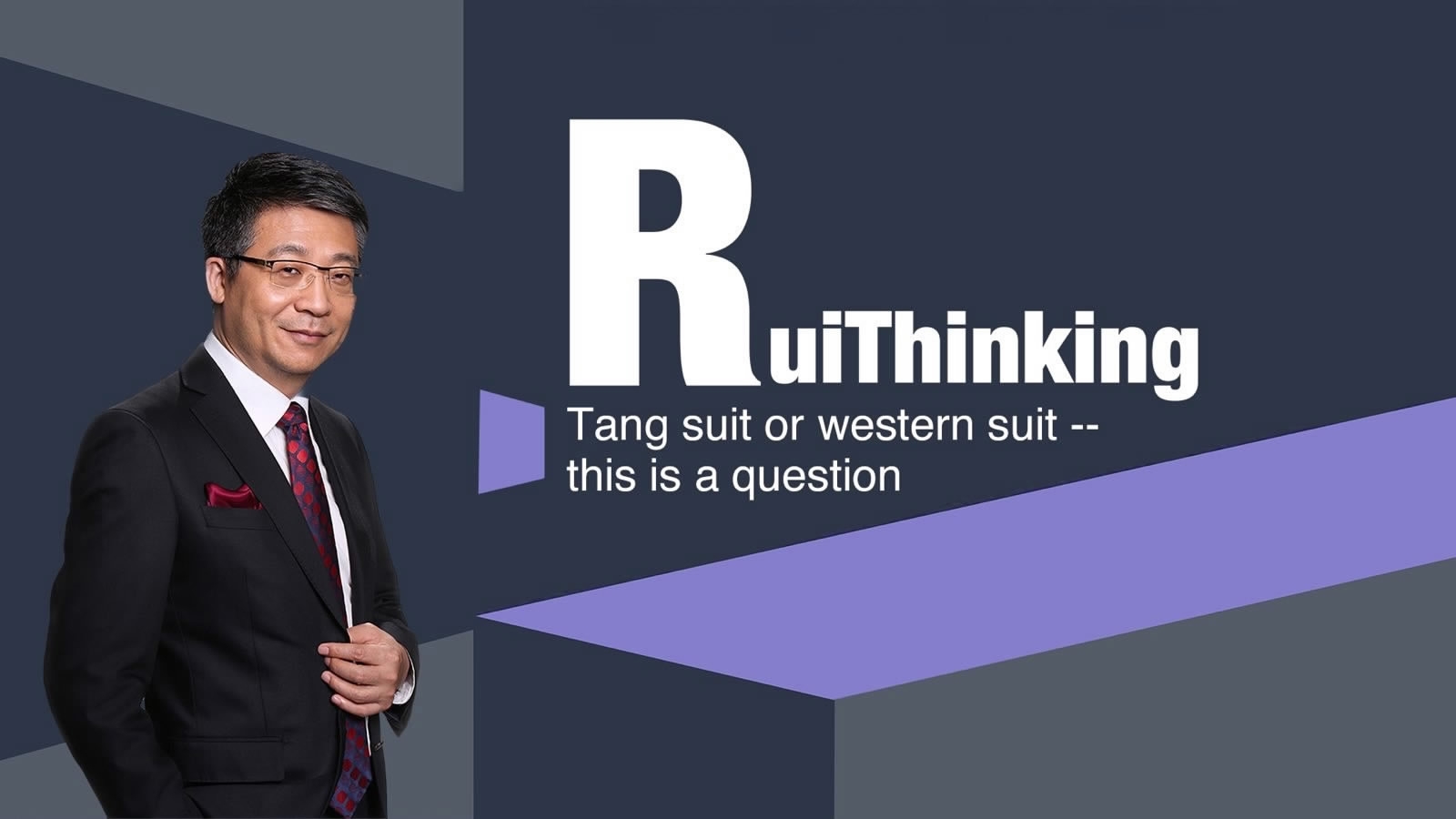
Opinions
15:49, 22-Nov-2017
RuiThinking: Tang suit or Western suit – this is the question
By CGTN's Yang Rui

If you were to ask why most Chinese officials wear Western suits instead of a Tang suit or Tang Zhuang, many would be left speechless. Please don’t read too much into this being a political statement on China's official dress code but this topic has been ignored since the end of the Cultural Revolution in 1976.
In those days, all Chinese wore Mao jackets. This was both political and traditional. Few people would ask why we fail to opt for Mao jackets when the Chinese foreign ministry started to speak Mandarin instead of English at its regular press conference.
The cultural confidence of a big civilization comes from many things, including China's long history and even diversity of the cuisine. But, I am very disappointed the dress has never caused any serious public discussions.
Japan provides a sharp contrast to China in terms of how they balance their cultural customs and modernization. China's neighbor became a regional power after beating Russia and China in two wars around the turn of the 20th century. But the Japanese ambition had actually started with its Meiji Restoration and use of Western suits. Most employees in Tokyo wear Western business suits today, but the kimono they put on at a typical Japanese ceremony is also very impressive. Their modernization arises from a perfect combination of both. China gets lost.
Not only have most ignored dress code and show up extremely casual for formal occasions, but traditional robes of the days since the Revolution of 1911 fail to be marketed or gain popularity. I am not saying it is wrong to wear Western suits on formal occasions but, re-emergence of the great nation has to be coupled with a wardrobe renaissance.
However dangerous or provocative the independence movement is in Taiwan, with some calling it a renegade province, this island has done more to preserve traditional Chinese culture.
The endless radical political movements on the mainland since 1949 or perhaps since the radical repudiation of Confucianism that characterized the May 4th Movement at the beginning of the 20th century have both wreaked havoc with the way we dress. Heritage of traditions in this land tends to be the first casualty of our penchant in learning from the West.
Is it time for the pendulum to swing back to our Chinese national identity? I would argue, yes! But we have to be careful not to be labeled a nationalist or being assertive due to Western-centric and ideological lens. We Chinese need to return to who we are instead of what we want. Admittedly, we have lost some of the assets we should have held dear about our tradition.
This discussion aims to resume our deep national identity. Is this an issue of soft power? Yes, absolutely yes. But professor Joseph Nye of Harvard may disagree, but let it be. I am more interested in a balanced diversity. Otherwise the world would be very boring. How we look is as important as what we want today.

SITEMAP
Copyright © 2018 CGTN. Beijing ICP prepared NO.16065310-3
Copyright © 2018 CGTN. Beijing ICP prepared NO.16065310-3